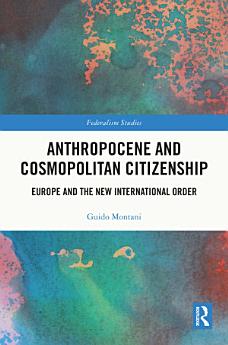Anthropocene and Cosmopolitan Citizenship: Europe and the New International Order
About this ebook
At the end of the Second World War, the two superpowers agreed on a new international order that, to this day, has prevented a new world war. This era is over. The collapse of the Soviet Union and the economic and political affirmation of new international powers – such as China, India and Brazil – have generated a multipolar world, in which growing tensions between great and small powers are manifested, up to the threat of nuclear war. To this threat, a second one has been added: the possible collapse of the biosphere, an epoch called the Anthropocene, because the pollution of nature is suffocating the life of every living species on the Planet, including Homo sapiens. The United Nations can be viewed as the first step towards a post-Westphalian system, and the European Union represents an alternative model for peaceful relationships among national peoples. The book’s methodology draws on an interdisciplinary relationship between social sciences and nature sciences to provide a European foreign policy strategy that shows how the European Union can play a crucial role in current international politics, helping build a just world in harmony with nature, including by calling for a Global Green Deal and an Earth Constitution. The integration of the national peoples of the European Union shows that supranational citizenship is possible and that national independence is compatible with peaceful international interdependence. The author explores how this can be achieved and how alternatives have failed, with reference to federalism, ecologism, liberalism, democracy, socialism, nationalism, security and patriotism.
This book will be of interest to scholars of international relations and European studies and activists, including ecologists, young people, federalists and members of political parties.
About the author
Guido Montani is Professor of International Political Economy at the University of Pavia, Italy. His most recent books are Supranational Political Economy: The Globalisation of the State-Market Relationship (Routledge, 2019) and Antropocene, nazionalismo e cosmopolitismo. Prospettive per i cittadini del mondo (2022).




